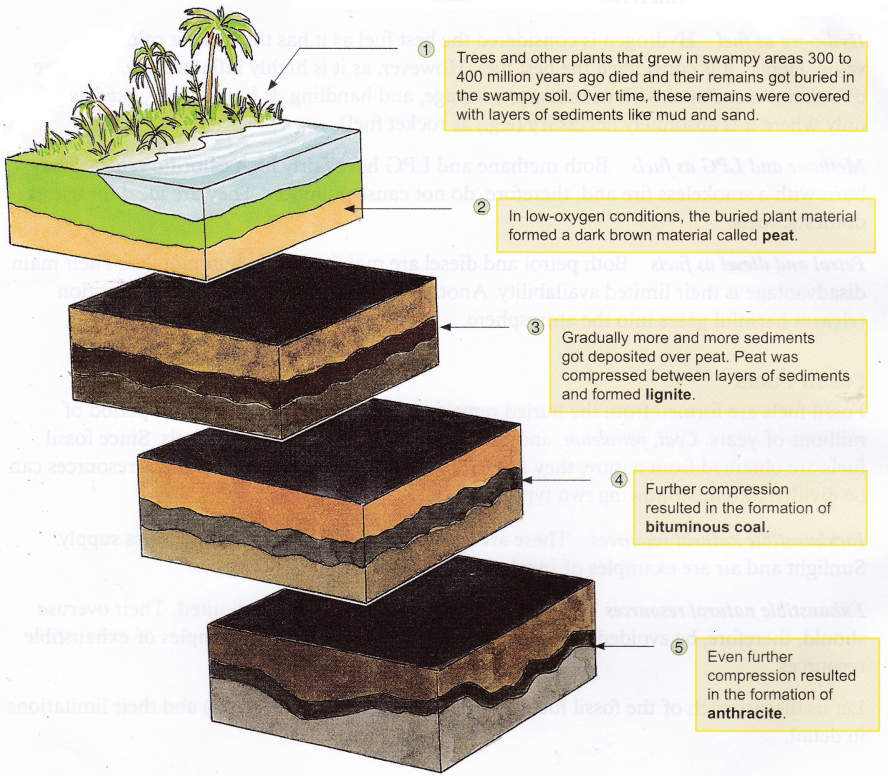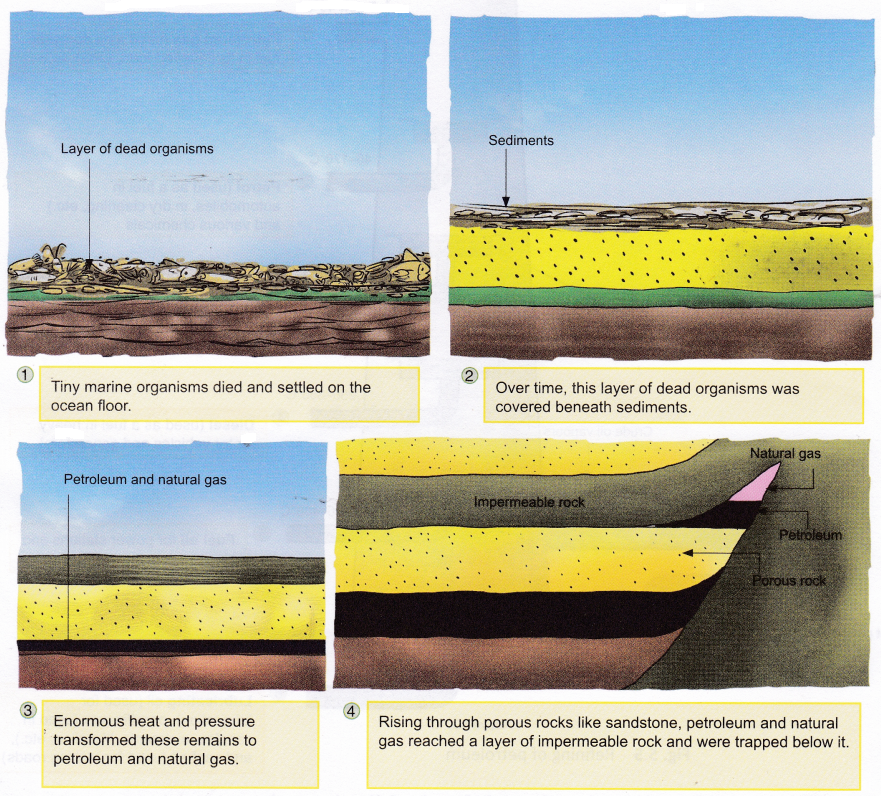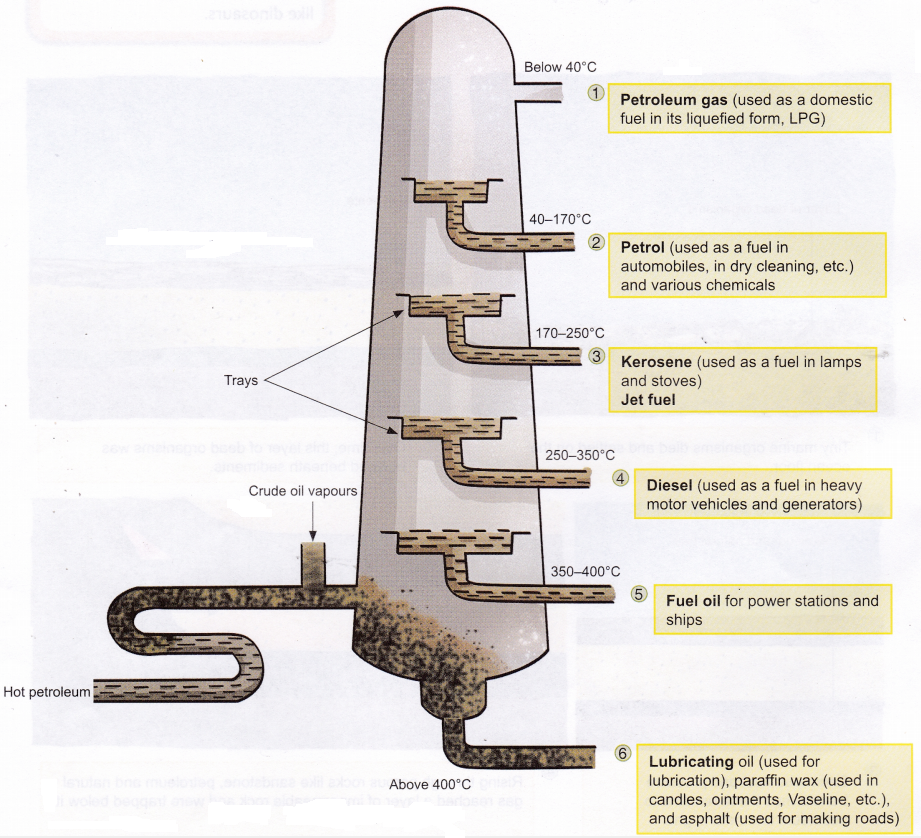What are the Different Types of Fossil Fuels
Fossil Fuels
Fossil fuels are formed from the buried remains of plants and animals over a period of millions of years. Coal, petroleum, and natural gas are examples of fossil fuels. Since fossil fuels are obtained from nature, they are referred to as natural resources. Natural resources can be divided into the following two types.
- Inexhaustible natural resources: These are resources of which there is a limitless supply. Sunlight and air are examples of inexhaustible resources.
- Exhaustible natural resources: These are resources whose supply is limited. Their overuse should, therefore, be avoided. Fossil fuels, forests, and wildlife are examples of exhaustible resources.
Let us discuss each of the fossil fuels (coal, petroleum, and natural gas) and their limitations in detail.
Coal
Coal is generally black or brownish-black in colour. Depending on its carbon content, it can be divided into three main types.
- Anthracite It has a carbon content of around 92-98% and is regarded as the highest grade of coal. It is mainly used for heating.
- Bituminous coal It has a carbon content of around 60-80% and is mainly used for power generation and for manufacturing another fuel called coke.
- Lignite It has a carbon content of around 25-35% and is regarded as the lowest grade of coal. It is mainly used for power generation.
Coal was formed from the remains of plants that grew in warm, humid swamps 300 to 400 million years ago. The process of formation of coal is shown below.

Coal is processed farther to obtain useful materials like coke, coal tar, and coal gas.
- Coke It is a hard, dry fuel produced by heating bituminous coal to a very high temperature in the absence of air. Coke has a high carbon content and is used as a fuel and in steel manufacture.
- Coal tar It is a thick, black, opaque fluid obtained as a by-product of the process of manufacturing coke. It is used in anti-dandruff shampoos, ointments, soaps, perfumes, etc.
- Coal gas It is a gaseous fuel obtained as a by-product of the process of manufacturing coke. Before the development of natural gas supplies, it was used as domestic and lighting fuel.
Petroleum and Natural Gas
Petroleum and natural gas were formed from the remains of tiny marine organisms that died millions of years ago. Petroleum was mainly formed by the decay of tiny marine organisms, not large land animals like dinosaurs. The process of formation of petroleum and natural gas is shown below.

Petroleum and natural gas are extracted by drilling through the impermeable rocks. Petroleum or crude oil is a complex mixture of solid, liquid, and gaseous hydrocarbons. It is separated into useful substances through a process called refining of petroleum. This is done in oil refineries. In this process, petroleum is heated to 400°C and introduced in a fractionating column, which is a tall, cylindrical structure fitted with horizontal trays. As the vapours of petroleum rise inside the fractionating column, they cool and condense at different heights, depending on their boiling points, and are collected in different trays. Uncondensed hydrocarbons (petroleum gas) pass out of the column. The refining process is also called fractional distillation. The main products obtained are shown in the figure below.

Natural gas consists mainly of methane. It has the following main uses.
- It is used for the generation of electricity.
- Compressed natural gas (CNG) is used as a fuel in automobiles as it is more environment- friendly than petrol or diesel. It is also used as a domestic fuel.
- It is used in the production of ammonia.
- It is used to produce hydrogen.
- It is used in the manufacture of steel, glass, plastics, and other products.
